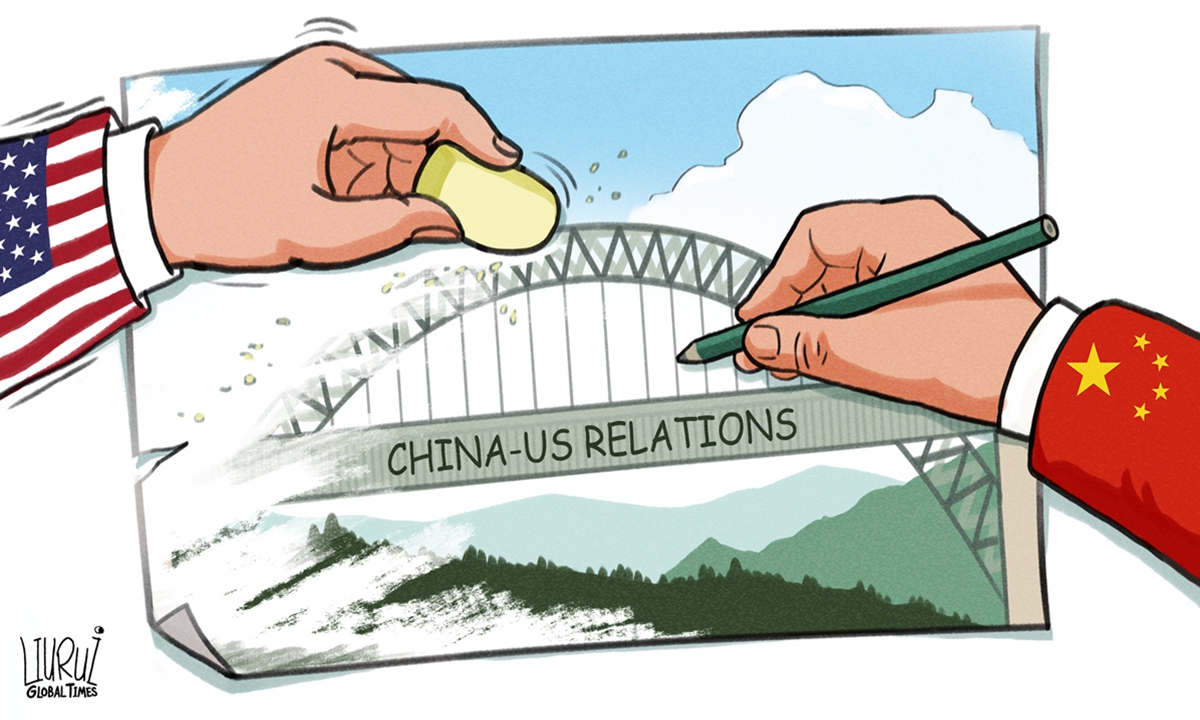
Illustration: Liu Rui/GT
Can China and the US still cooperate? The US Senate Foreign Relations Committee on Wednesday backed the "Strategic Competition Act of 2021" by 21-1, reaching a bipartisan US congressional push to "counter China." Taking a hard stance against China has become one of the rare consensuses of the two US parties.
The act again mentioned Chinese internal affairs, including Hong Kong and Xinjiang, and also mentioned "closer ties with Taiwan." Senate Foreign Relations Committee Chairman Bob Menendez said in a statement that the act is an "unprecedented bipartisan effort to mobilize all US strategic, economic, and diplomatic tools... to truly confront the challenges China poses to our national and economic security."
This Act is to strengthen its efforts wherever it can to mess China up. Most Chinese people have realized that the US is suppressing China in all directions and trying to take China down. The US is just like a fouled player in a game. Once it finds that it is falling behind, it starts to obstruct its opponent. A Chinese netizen sarcastically said, "The US Congress has been discussing China's internal affairs all day long, as if it has nothing else to do without China-related topics. It is acting as if it's China's 'Congress.'"
US Secretary of State Antony Blinken once described China-US relations as "competitive when it should be, collaborative when it can be, and adversarial when it must be." But this Act has made it seem like Washington has abandoned "collaborative when it can be." The Act is pushing China-US relations further toward extreme competition and confrontation.
"The White House has not completely formed its China policy framework yet. Backing the bill at this stage shows that Congress is trying to guide the Biden administration's China policy toward a tough stance," Sun Chenghao, assistant research professor at the Institute of American Studies at the China Institutes of Contemporary International Relations, told the Global Times on Thursday.
After the Act takes effect, the flexibility of the Biden administration's China policy will also be seriously weakened. The strategy of "collaborative when it can be" seems to have been hollowed out. From the general atmosphere to specific issues, the room for China-US cooperation will be further squeezed.
"Strategic competition against China is now the consensus of the two US parties. Chinese people should not have any illusions that the US believes cooperation is still the mainstream of China-US relations. This seems unlikely now," Sun said.
It is very dangerous for the US to engage in a Cold War-style confrontation with China. China is on the rise in terms of governance, international influence and economy, while US strength is decreasing in these aspects. The US now lacks the ability to properly address various domestic problems and can only resort to maintaining global hegemony. This is costly and unsustainable for the US, and will also cause more uncertainties for the international community.
Some Chinese netizens even described the Act as the "Chinese Exclusion Act in the 21st century." The comparison might be exaggerating, however, it reflects people's worry as to where China policy of the US would head toward. The world's superpower is now treating China in a desperate manner, which just proves that China is developing on the right path. Who would believe that China is now nearly the only issue on which the two US parties can cooperate, and even the driving force of many US acts? Washington is anxious, while China will focus on doing its own things well and will continue its long-term opposition against hegemony.




